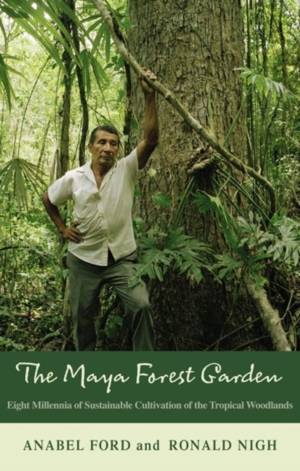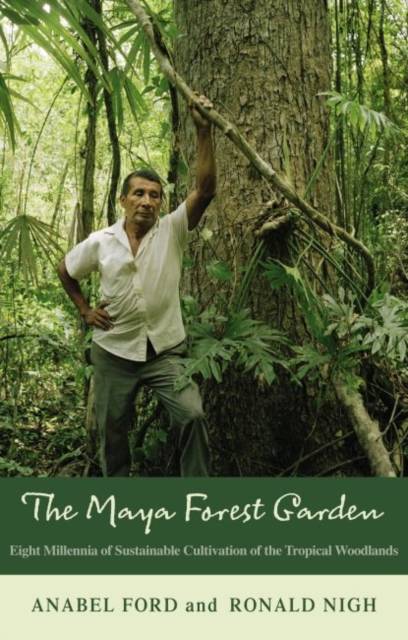
Je cadeautjes zeker op tijd in huis hebben voor de feestdagen? Kom langs in onze winkels en vind het perfecte geschenk!
- Afhalen na 1 uur in een winkel met voorraad
- Gratis thuislevering in België vanaf € 30
- Ruim aanbod met 7 miljoen producten
Je cadeautjes zeker op tijd in huis hebben voor de feestdagen? Kom langs in onze winkels en vind het perfecte geschenk!
- Afhalen na 1 uur in een winkel met voorraad
- Gratis thuislevering in België vanaf € 30
- Ruim aanbod met 7 miljoen producten
Zoeken
The Maya Forest Garden
Eight Millennia of Sustainable Cultivation of the Tropical Woodlands
Anabel Ford, Ronald Nigh
€ 86,95
+ 173 punten
Uitvoering
Omschrijving
The conventional wisdom says that the devolution of Classic Maya civilization occurred because its population grew too large and dense to be supported by primitive neotropical farming methods, resulting in debilitating famines and internecine struggles. Using research on contemporary Maya farming techniques and important new archaeological research, Ford and Nigh refute this Malthusian explanation of events in ancient Central America and posit a radical alternative theory. The authors-show that ancient Maya farmers developed ingenious, sustainable woodland techniques to cultivate numerous food plants (including the staple maize);-examine both contemporary tropical farming techniques and the archaeological record (particularly regarding climate) to reach their conclusions;-make the argument that these ancient techniques, still in use today, can support significant populations over long periods of time.
Specificaties
Betrokkenen
- Auteur(s):
- Uitgeverij:
Inhoud
- Aantal bladzijden:
- 260
- Taal:
- Engels
- Reeks:
- Reeksnummer:
- nr. 6
Eigenschappen
- Productcode (EAN):
- 9781611329988
- Verschijningsdatum:
- 30/06/2015
- Uitvoering:
- Paperback
- Formaat:
- Trade paperback (VS)
- Afmetingen:
- 160 mm x 226 mm
- Gewicht:
- 408 g

Alleen bij Standaard Boekhandel
+ 173 punten op je klantenkaart van Standaard Boekhandel
Beoordelingen
We publiceren alleen reviews die voldoen aan de voorwaarden voor reviews. Bekijk onze voorwaarden voor reviews.









